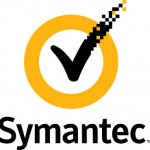 So this guy, right, he rings me up to ask what I think of him installing anti-virus software on his PC.
So this guy, right, he rings me up to ask what I think of him installing anti-virus software on his PC.
“Have you got the box there?” I asked.
“Yes.”
“Read the back to me.”
He did. Rattled off every detail on the back and said: “So what do you think, William?”
“I think you now know ten times more about anti-virus software than I do.”
I’m not blind to the problems of viruses and security on computers but I am on a Mac, it is true that I don’t have to think about it so much. I’ve grappled with the issue when setting up people’s PCs enough that viruses are one reason I stopped ever doing that: I can’t tell whether you’ve got a virus because I did something wrong or because nobody could’ve stopped it.
Apparently nobody could’ve stopped it. Symantec, long-time maker of anti-virus software, says that there’s no point to it: anti-virus doesn’t work. Brian Dye, Symantec senior vice president for information security told the Wall Street Journal that anti-virus “is dead”. Now, he then went on to say: “We don’t think of anti-virus as a moneymaker in any way.” That’s a significant difference: I’ve no reason to wish Symantec stops making money, but your lack of cash income doesn’t equal my having to give up on anti-virus.
That Journal interview is focused on what the company is doing with its business and it’s true that Symantec is moving away from anti-virus software. It’s also true, unfortunately, that it’s because such software isn’t working any more. Says the Wall Street Journal:
Symantec Corp. SYMC -0.05% invented commercial antivirus software to protect computers from hackers a quarter-century ago. Now the company says such tactics are doomed to failure.
Antivirus products aim to prevent hackers from getting into a computer. But hackers often get in anyway these days. So Mr. Dye is leading a reinvention effort at Symantec that reflects a broader shift in the $70 billion a year cybersecurity industry.
Symantec Develops New Attack on Cyberhacking – Wall Street Journal
Very broadly, anti-virus software works by recognising virus code – and it recognises it by comparing it to a database of existing viruses. That always meant that a brand-new virus would get by because it didn’t match any previous one and this is, again very broadly, why you’d have so many updates to anti-virus software. Now viruses and other malicious code tend to be new. According to the Wall Street Journal, “Mr Dye estimates anti-virus now catches just 45% of cyberattacks”.
What this means for Symantec is that fewer people are buying its software. What this means for users is harder to tell: Symantec, McAfee and Norton are reportedly moving to software that detects suspicious activity more than it does this code-comparison.